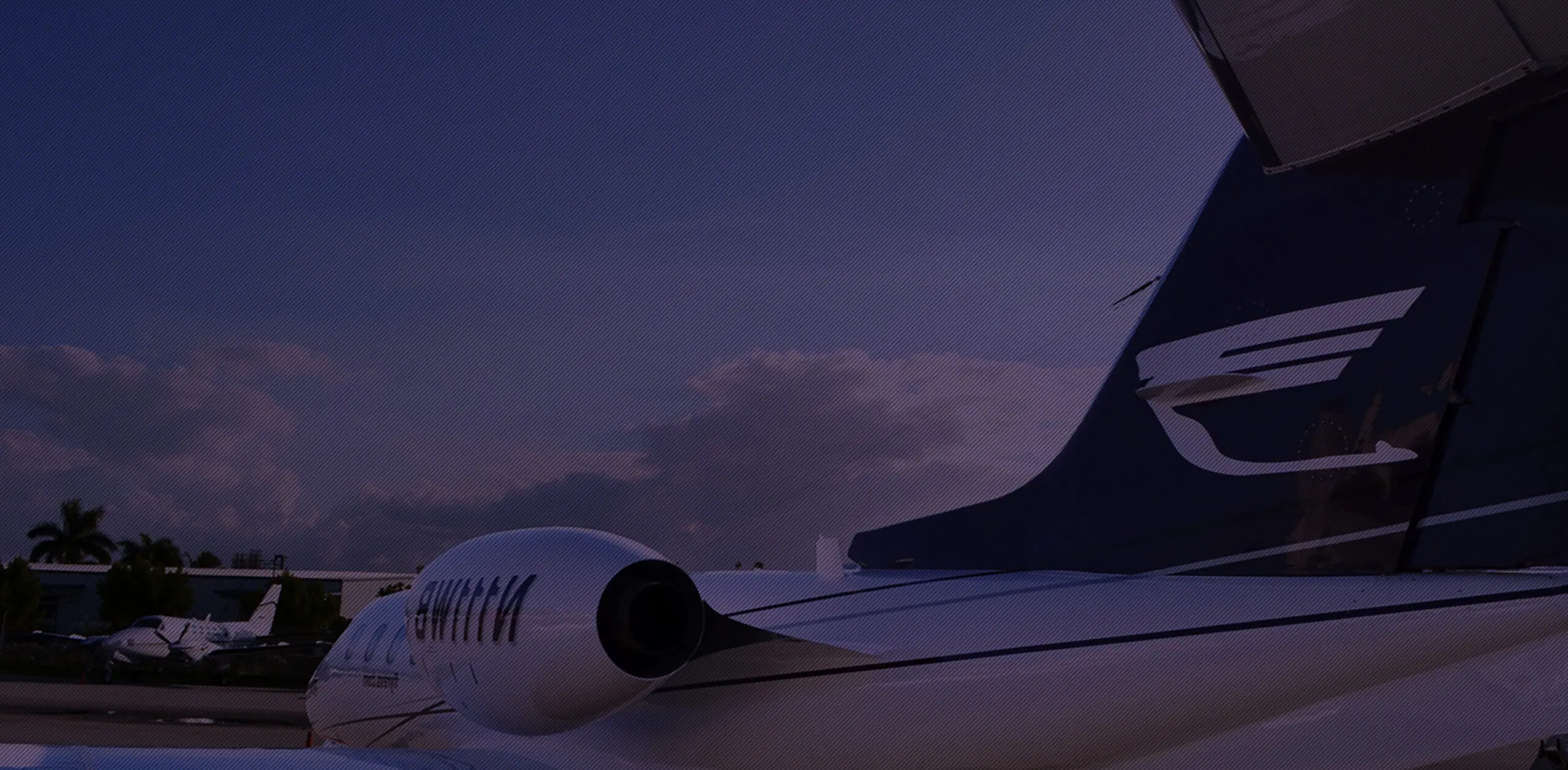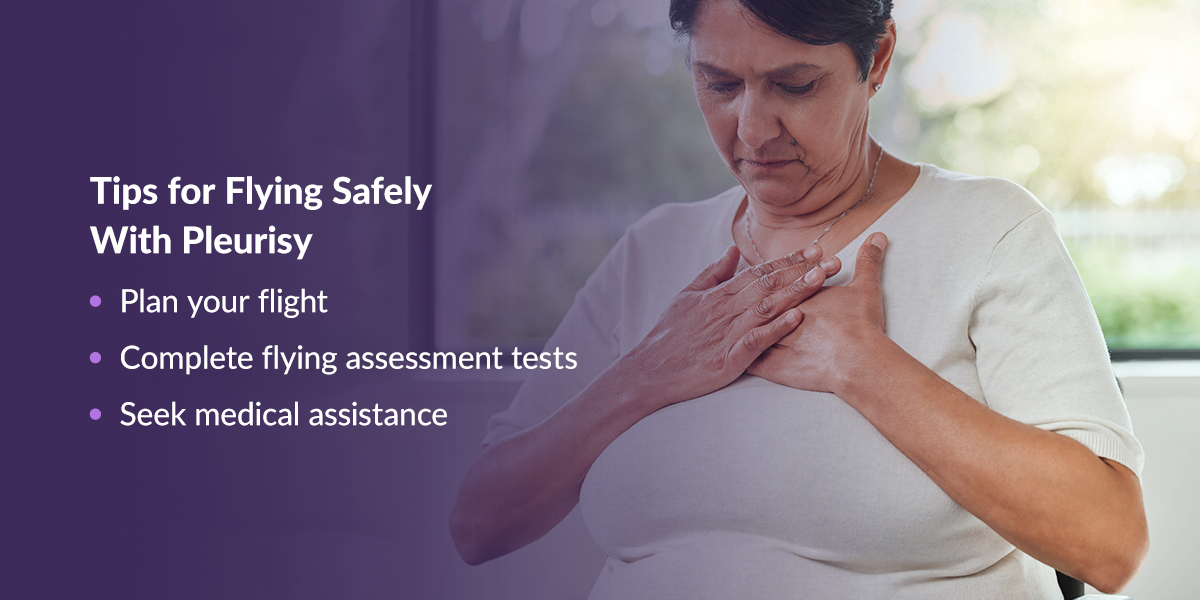Blog
STAYING ON THE FOREFRONT OF MEDICAL AIR TRANSPORTCan You Fly With Pleurisy?
If you have or know someone with pleurisy, you want to know what transportation you can take. Flying on a plane with pleurisy is often unadvised, but take precautions to remain safe if you have no other way to reach your destination. Ensure you can access medical assistance while flying by taking a flight with REVA or one of our medical escorts.
Learn what pleurisy is and how to protect yourself while flying with pleurisy.
What Is Pleurisy?
Pleurisy is when the pleura, the thin layers of tissue that separate your lungs and ribcage, get inflamed. The condition causes sharp chest pain and makes breathing difficult. The pleura is the barrier between your lungs and chest wall, so the two body parts don’t rub against each other. Instead, the pleura layers rub against each other smoothly, helping your lungs expand and contract easily.
When the pleura becomes inflamed, the tissue layers rub roughly against each other, almost like sandpaper rubbing against itself. The roughness causes immense pain when you’re breathing in and out.
In most cases, people contract pleurisy because of a bacterial or viral infection, like pneumonia or the flu. There are some rare instances where an individual can get pleurisy because of a pulmonary embolism, a blood clot in the lungs or lung cancer.
Symptoms of Pleurisy
When you have pleurisy, you may experience symptoms such as:
- Cough
- Shortness of breath
- Shallow breathing
- Sharp, stabbing chest pain
- Fever
- Fatigue
Sometimes, the pain can be so intense it spreads to your shoulders and back. If you experience symptoms, seek medical attention immediately.
Is Flying With Pleurisy Safe?
Flying with pleurisy is risky and not recommended. The changes in atmospheric pressure can make it hard for those with pleurisy because breathing becomes more strained. Pleurisy already makes breathing difficult, so experiencing lower oxygen levels in the cabin adds to the challenges.
Your risk while flying with pleurisy increases if it’s a long flight. Blood clots are more likely to form during long-distance flights because of your limited mobility. If you develop a blood clot while having pleurisy on a flight, you must be extra careful to prevent it from rupturing.
However, with the proper precautions, it is possible to fly with pleurisy.
Tips for Flying Safely With Pleurisy
If you need to take a flight despite having pleurisy, take the following precautions to make sure you arrive at your destination quickly and safely:
- Plan your flight: You’ll need more services from professionals than the average person, so plan your transportation wisely to meet your needs.
- Complete flying assessment tests: Your doctor may have you complete tests to determine if you can fly. By completing the tests, your doctor will see if you can board an airplane and fly short distances.
- Seek medical assistance: If you feel uncomfortable flying without medical assistance, you can find a highly trained and experienced medical escort. Your medical escort will be on the plane with you, providing any emotional or medical support you may need during the flight.
Consequences that could happen as a result of flying with pleurisy can occur instantly, so having a medical professional with you at all times during the flight is crucial to keeping you safe.
Travel With a Medical Escort or in an Air Ambulance
Having pleurisy makes traveling more complicated as you need to stay aware of the risks you could experience. Ensure you stay safe if you ever have to fly on a plane with pleurisy by taking an air ambulance or working with a medical escort from REVA. With how careful you must be while flying with pleurisy, being accompanied by medical professionals will help you have peace of mind.
At REVA, our air ambulances have experienced and trained medical professionals on board to help you. The aircraft also has official medical equipment that allows you to receive the best health care services possible. The risks you could endure are unpredictable and require immediate action, so our team is available to help. Flying in an air ambulance also provides privacy so you can rest comfortably.
We have medical escorts to help you on commercial flights as well if you have to take one. Our medical escorts make sure you have everything you require to help you get through the flight. They also have extensive training and experience to help you if your pleurisy symptoms worsen during the flight.
Contact REVA for an Air Ambulance
When you have pleurisy or other illness that makes traveling by air challenging, rely on REVA to get you where you need to go. Our air ambulance services help travelers get to their destinations quickly. With professional medics and equipment on board, you can have peace of mind knowing you’ll get to your destination safely. Request a quote for an air ambulance today!


